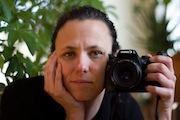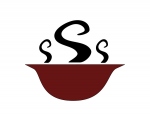Note: New essays are on hold for now, but here’s a gem from the archives.
By Meg Heimovics Kumin
 When I was two, my father told me, “If you know what you want to do by age thirty-two, you are going to be all right.” I probably threw my Cheerios at him.
When I was two, my father told me, “If you know what you want to do by age thirty-two, you are going to be all right.” I probably threw my Cheerios at him.
I was six when my father told me, “If you know what you want to do by age thirty-two, you are going to be all right.” I thought thirty-two was old—ancient old. I had all the time in the world.
I was twelve when my father told me, “If you know what you want to do by age thirty-two, you are going to be all right.” By then, all the career and personality tests had told me I was exceptional at math and spatial reasoning, and I should be an engineer. I wasn’t sure I agreed.
I was seventeen when my father told me, “If you know what you want to do by age thirty-two, you are going to be all right.” By this time, I knew exactly what I wanted to do. Two years earlier I had picked up my dad’s 1970-something Nikon camera and fallen in love with the lens. I took classes and put a darkroom in my parents’ basement. I became photo editor of the newspaper and photographer for the yearbook. I spent all of high school behind the camera and under the dim, red light of the darkroom. What did I want to do when I grew up? I wanted to be a National Geographic photographer! I wanted to follow Jane Goodall around the primate world. I wanted to capture the next “Afghan Girl.” I wanted this, but I also knew it was a pipe dream, and never, ever, going to happen—unless I got really good.
I was twenty-one when my father told me, “If you know what you want to do by age thirty-two, you are going to be all right.” This time I was on the cusp of graduating college with a degree in American Studies, with a focus on race, ethnicity, and culture. I stumbled into the degree following a thirst for understanding people and identities. It was a discipline that taught me to read, think, and write—and I loved it. But I was no Cornell West, and I worried that I’d spend the rest of my life waitressing.
So I spent my fourth and fifth years taking engineering electives including calculus, physics, and computer programming. It was coding that lit up my mind. It was like one, never-ending puzzle, and I loved it. I began to think maybe those career tests were right. Following graduation, I pursued a Master’s in Computer Science.
I was twenty-seven when my father told me, “If you know what you want to do by age thirty-two, you are going to be all right.” This time I smiled, and so did he. I had figured out what I wanted to be. I had just landed the best job in the world as a software developer at the University of Kansas Biodiversity Institute writing biological collections management software for natural history museums.
I got married and three months later, we found out we were pregnant, rather unexpectedly. Within a year of landing the best job ever, we welcomed our whoopsie-baby, and I had a crisis of identity. Did I want to be a grown up inhabiting the working world, or did I want to get lost in my child’s world? I decided I wanted it all. Fortunately, my boss was more than accommodating. I became an anomaly in the Mommy Wars: I was a full-time employee who brought my baby to the office. With a bouncy seat next to my keyboard, I tickled his tiny toes while I wrote java code.
I was thirty-two when we welcomed our third-born to the world. We also welcomed the rotavirus, and influenza, and sick days quickly outpaced accrued leave. It became clear that being the mother I wanted to be AND having the career I thought was for me, was unsustainable. I quit my job as a software developer to stay at home and be a childware developer.
I was thirty-two when my father told me, “Your mother is in the hospital. The doctors say she has a tumor that runs from her ear, down her neck, along her spine, into her armpit and onto her lung. The prognosis is not good.”
I was thirty-two when my father had a nervous breakdown—not the metaphorical kind, but literal catatonia. The doctors said he needed an institution and a dose of shock therapy, or the prognosis would not be good.
I was thirty-two when neither parent could care for the other. For the next year and a half, it didn’t matter what I wanted to do, I did what I had to do. I got to wear my stay-at-home-mom hat and chemo-buddy hat and power-of-attorney hat. I might have looked all grown up, but I was navigating life like a six-year-old behind the wheel of a Mack truck. How I got through it without becoming an addict or clinically depressed is the topic of a story I will probably never write.
After my mom passed, I found writing and the words poured out of me. I read and wrote and wrote and read. I used the voice inside my fingers to try to make sense of where I’d been, who I’d become, and who I wanted to be. I picked up my camera and began attending to small wonders; it filled me with a love of life again.
I was thirty-five when Kate Gace Walton butted into my life and did this thing that she does. She asked me, “What do you do? Will you write about it?” Little did she know it was a loaded question, as virulent and unsettling as this year’s flu.
It’s been two years since Kate first asked me to write this essay. I wish I could say I blew it off, but I didn’t. I obsessed about it. Countless times, I closed my eyes and asked myself, “What do you want to do?” Again and again, I thought about where I’d been and what I’d done. I thought about what I would regret having never done. The picture became clear. I wanted to live life in Kodachrome and capture it with the lens.
So I took the plunge. I built a website and made a plan. I announced to the world, “I’m doing it!” While thirty-two was my father’s number, perhaps thirty-seven is mine. I may not be a National Geographic photographer, but I’m on a path of passion and no regrets…and it feels better than all right.
Meg Heimovics Kumin is a photographer based in Lenexa, Kansas. Her work can be viewed at Meg Kumin Photography.
 Work Stew is a collection of original essays and in-depth interviews. To learn more, please visit the FAQ.
Work Stew is a collection of original essays and in-depth interviews. To learn more, please visit the FAQ.
